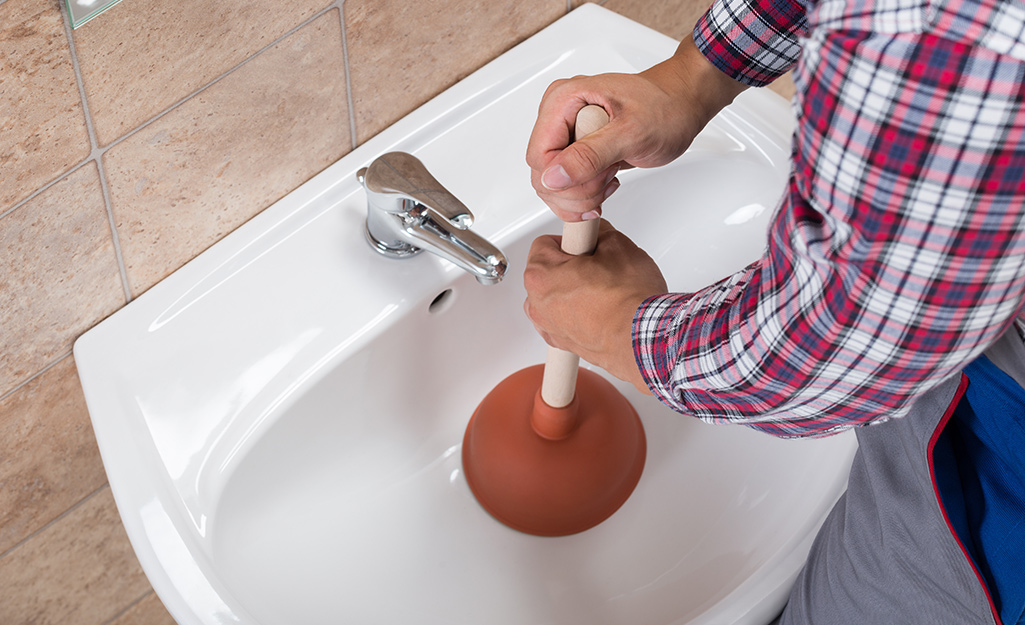Measures for Managing a Blocked Drain Prior to Reaching out to Expert Help
Measures for Managing a Blocked Drain Prior to Reaching out to Expert Help
Blog Article
What're your opinions concerning How to handle a clogged drain in your home?

Intro
Taking care of an obstructed drain can be a frustrating experience, interfering with day-to-day activities and possibly causing damages to your residential or commercial property. Nevertheless, prior to reaching out to plumbing experts, there are steps you can require to deal with the issue on your own. In this overview, we'll check out DIY services and safety nets to tackle an obstructed drainpipe efficiently.
Determining the Problem
The first step in dealing with an obstructed drainpipe is acknowledging the indications. Slow-moving drainage, gurgling noises, foul odors rising from drains, or water support up prevail indications of an obstructed drainpipe. Determining these indicators early can aid prevent additionally difficulties.
Common Sources Of Blocked Drains
Understanding the aspects that contribute to drain obstructions is crucial for effective resolution. Usual perpetrators include hair, soap scum, oil, food debris, and foreign things like hygienic items or paper towels. Tree origins getting into below ground pipes can likewise trigger considerable obstructions.
Do it yourself Solutions
For minor blockages, several DIY solutions can be efficient. Putting boiling thin down the drain can assist dissolve grease and particles. Sodium bicarbonate and vinegar or a blend of salt and cooking soft drink can work as natural cleaners. Making use of a bettor or pipes snake to dislodge blockages is another choice.
Devices and Devices
Having the right devices available can make DIY drainpipe cleaning extra efficient. A plunger is a flexible device for removing clogs in sinks, bathrooms, and showers. A plumbing serpent or auger can get to deeper obstructions, while drainpipe cleaning chemicals can be used carefully for stubborn obstructions.
Preventive Measures
To stay clear of future blockages, adopting safety nets is crucial. Install drainpipe guards or strainers to catch hair and particles prior to they get in the pipes. Routinely flush drains with hot water to dissolve grease accumulation, and prevent taking care of oil or solid waste down the tubes.
When to Call a Professional
While do it yourself solutions can fix minor clogs, particular indications show the demand for professional assistance. Relentless blockages, foul odors in spite of cleaning efforts, or several drains pipes backing up concurrently are red flags that warrant experienced treatment.
Choosing the Right Plumbing Solution
When choosing a pipes solution, consider elements such as experience, licensing, and client testimonials. Pick a respectable plumbing with a performance history of quality workmanship and clear pricing practices.
Cost Factors to consider
The expense of expert drainpipe cleaning company can differ relying on the intensity of the blockage and the plumbing professional's rates. Demand quotes from several suppliers and inquire about any additional charges to guarantee openness and stay clear of surprises.
Safety Measures
When attempting do it yourself drain cleaning, focus on safety. Use safety gloves and eyewear to stay clear of contact with dangerous chemicals or germs. Never ever blend different drainpipe cleansing products, as this can generate unsafe fumes.
Instance Researches
Real-life instances highlight the performance of do it yourself services and the relevance of timely professional treatment in settling drainpipe blockages.
Conclusion
By following the pointers laid out in this guide, you can successfully tackle obstructed drains and avoid future plumbing problems. Whether selecting DIY solutions or looking for expert assistance, timely action is vital to preserving a healthy and balanced plumbing system and maintaining the integrity of your home.
9 Ways You Can Clear a Blocked Drain
Blocked Drains from Hair
We’ve seen it all before, a build-up of hair that’s leads to a clogged drain. Most times it’s a moderately easy task to simply ‘remove the hair’, but if it’s not cleared up straight away – it can cause a lot of issues down the line.
Hair falling off the body in the shower or while getting ready over the sink and in the bathroom is one of the most common causes of blocked sinks and drains. But whilst it’s a common problem for many homeowners, there are ways you can fix your drain and put a long-term solution in place.
How to Fix Blocked Drains from Hair?
What to do: Small amounts of hair can be removed by pulling it out with gloved hands to avoid it getting worse. Drain cleaning devices such as drain spiders can also be purchased to help remove the hair from the drain. However, it’s important to be careful as some devices and cheap hair removal chemicals can make the problem worse.
It’s important to remove the hair before it gets clogged into the entry of the drain pipes. If you’re unable to reach the hair or the devices aren’t working as intended, it’s time to speak to a blocked drain specialist.
Blocked Drains from Plants and Dirt
Natural debris like trees, shrubs, dirt and leaves can be an issue for water drains, especially after spring and autumn. Your regular garden and drain maintenance that keeps the outdoor area looking great is also essential to the productivity of your water drains and pipes.
Leaves aren’t the only culprit, however – tree roots are notorious for growing underneath in search of water and as a result, will usually head straight to your drains.
How to Fix Blocked Drains from Plants and Dirt?
What to do: To prevent plants, leaves and dirt from blocking the drains, keep the outdoor area clear of fallen leaves and debris. If this mess is left long enough, it will cause your drains to become severely blocked.
Keep your trees well-watered so they are less drawn to the drains as a source of moisture and stay away from clogging plants where possible; like willow trees, oak trees, magnolias, boxwood shrubs, palm trees and gum trees.
While ensuring your yard is free from leaves and dirt is a great way to prevent build-up, sometimes the real issues lay under the surface. Tree roots can crack your drain pipes beneath your home – causing severe blockages and leaks. Specialist drain cleaning equipment can be used to clear the blockage and pipe relining technology can provide a long-term structural repair.
Blocked Drains from Grease Build-up
Like hair in the bathroom, grease and fat will build-up in the kitchen sink over time. These fatty substances are a very common cause of blocked drains and pipes and can be a nuisance to clear out.
Any grease waste or fatty substance that is washed down the sink will stick to the inside of the pipes and eventually build up to a point no liquid can pass through. It’s important to be aware that this grease doesn’t leave the pipes as easily as you would expect.
How to Fix Blocked Drains from Grease Build-up?
What to do: Avoid washing these fatty ingredients down the affected drain as much as possible. Grease that’s washed down the drain will cool and harden in the pipes.
A smart way to prevent this build-up of grease is to start collecting all glass jars that you purchase at the supermarket. Then, instead of pouring this oil or kitchen grease down the drain, put it in the small glass or plastic containers to discard with your garbage.
Blocked Drains from Toiletries
As more people get into the habit of disposing of toiletries down the drain, bigger problems are being caused in our pipes and sewers. Nappies and baby wipes are the two common issue items known to block drains after being flushed down the toilet.
Such items become immersed with water, they absorb the moisture and enlarge, quickly blocking access to water drains and pipes.
How to Fix Blocked Drains from Toiletries?
What to do: This way of disposing of toiletries is dreadful for the environment and everyone should be encouraged to dispose of toiletries the right way. In the home, these items should be taken out with your garbage, just as people should make use of the designated bins when using public changing rooms and toilets.
Blocked Drains from Heavy Rain and Storms
Throughout the wet season, drains will experience floods of water because of heavy rainfall. Because drains aren’t really designed to take the full impact of this weather, water build-up can be common in many Perth households.
When there is an overflow of rainwater in gutters and downpipes, there’s a good chance there’s a blocked drain that needs to be cleared out.
How to Fix Blocked Drains from Heavy Rain and Storms?
What to do: Ensure gutters and outdoor drains are cleaned during the wet season to prevent a build-up of leaves which will cause a bigger blockage. Problems caused by heavy rain and storms will usually require a plumber to help unclog and assist with the wastewater removal. If this is the case, contact them as soon as possible to prevent further build-up and potential flooding in your home and yard.

Do you really like reading up on Some easy tips to fix blocked drains? Try to leave a remark down below. We would be pleased to see your responses about this post. We are looking forward that you visit us again before long. Sharing is good. You never know, you may just be helping someone out. I love reading our article about .
Call Report this page